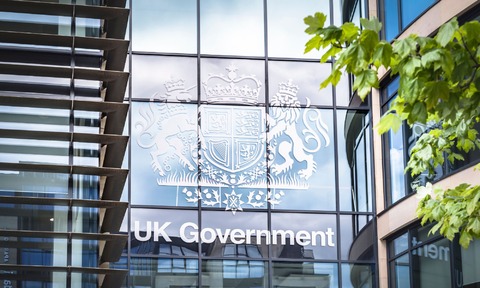UK science institutions ‘vulnerable’ to political interference, warns report
9 Oct 2025

Leading UK scientific institutions such as the Met Office and the UK Health Security Agency lack sufficient defences to prevent potential political interference, claims a new report.
Published by the UCL Policy Lab, Strengthening the institutions we rely on examined 24 of Arm’s Length Bodies (ALBs), including the Medicines and Healthcare products Regulatory Agency (MHRA).
It warns that more must be done to protect the role of bodies responsible for the country’s environmental, health and food security, with greater emphasis on developing resilience and accountability.
The report highlighted that one in three ALBs in the sample lacked statutory status, meaning their existence, powers, and functions are not defined and authorised by an Act of Parliament. Reliance on government for funding, priority-setting and appointment decisions presents a further vulnerability, it adds.
Bodies that report directly to Parliament tended to have stronger defences against political pressure, said the authors. However, two-thirds of the ALBs in the review were represented by their sponsoring minister on the Commons floor.
Restricted freedom to publish evidence, advice, or scrutiny without ministerial approval was identified as a key problem for some ALBs; one in five of the bodies studied have restrictions on their transparency, including mandatory ministerial sign-offs and influence over drafts.
Furthermore, institutions remain vulnerable to an administration that might wish to suppress evidence; for example, the Met Office, where climate change research was concerned, suggested the report.
Co-author professor Christina Pagel of UCL mathematics department said: “The degree of independence across ALBs varies greatly, but together this report paints a worrying picture. We have identified a vulnerable system underlying the crucial functions these bodies perform, with a hotchpotch of arrangements.
“We’ve seen how the replacement of agency leadership, purges of internal watchdogs and legal re-engineering have been weaponised in the USA, not to mention the slashing of funding and the suppression of research, and it is vital the UK learns lessons from this before it is too late.”
The report was funded by UCL Public Policy through Research England’s QR-PSF funding and by UCL Network funding through EPSRC IAA.
The ALBs reviewed included: the Office for National Statistics (ONS), UK Statistics Authority (UKSA), Office for Budget Responsibility (OBR), Office of the Children's Commissioner, Commission on Human Medicines, National Institute for Health and Care Research (NIHR), Office for Environmental Protection (OEP), Food Standards Agency (FSA), Office for Students (OfS), National Institute for Health and Care Excellence (NICE), DEFRA's Science Advisory Council, Climate Change Committee (CCC), The National Archives, Environment Agency, Marine Management Organisation (MMO), Health Research Authority (HRA), Medicines and Healthcare Products Regulatory Agency (MHRA), Independent Commission for Aid Impact (ICAI), The Met Office, UK Research and Innovation (UKRI), Joint Nature Conservation Committee, Natural England, UK Health Security Agency (UKHSA), Defence Science and Technology Laboratory (DSTL).
Pic: Shutterstock

